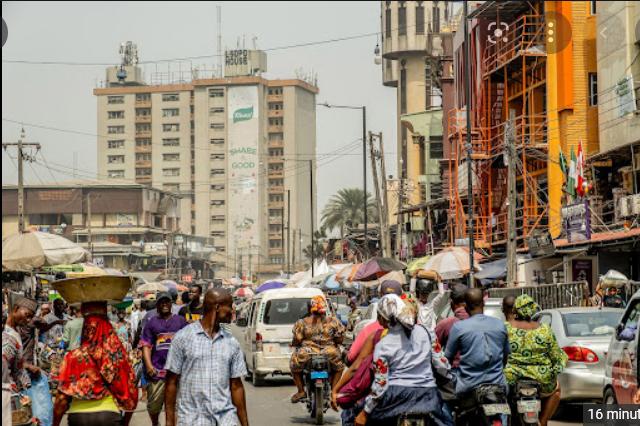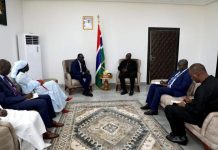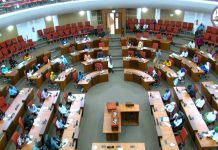Africa-Press – Gambia. Bloc is working on a package to support transport networks, as well as energy, digital, education and health projects The EU is working on a €20bn financing package to support African transport networks, as well as energy, digital, education and health projects to counter China’s reach in the continent.
Member states, however, have yet to commit to financing the infrastructure plans, according to officials familiar with the discussions.
The bloc’s plan includes strategic corridors, international submarine cables, new energy interconnections and investments in renewable sources in Senegal, Ivory Coast, Egypt, Morocco and Kenya, according to a draft of the package seen by Bloomberg.
The investment is aimed at underpinning the new partnership that the EU and Africa want to seal at a February 17-18 summit in Brussels.
African leaders have prioritised roads, railways and bridges. But some EU governments face national budgetary constraints that make it hard for them to pledge significant funding ahead of the meeting, while others, including Germany, remain sceptical about the readiness of some of the proposals, officials added.
The EU list includes about 60 projects meant to relaunch the relationship, after months of tensions over vaccine supplies and patents, as well as travel restrictions aimed at stemming the Covid-19 pandemic.
Most of the funds in the EU’s plan would go to the Global Gateway, Europe’s initiative to rival China’s huge investment plan in the continent. The bloc is seeking to mobilise €150bn by 2027 from various sources.
The EU offers “quantitative and qualitative advancements on infrastructure financing”, according to the document. The bloc promises “substantial funding” to invest in projects and for technical assistance to identify new ones. The EU also wants to attract private money by using public funds as guarantees and involving African development banks.
Beijing promised in 2018 about $60bn in loans over three years to finance roads and bridges in Africa. But China’s Belt and Road plan has been controversial from the outset due to corruption and debt sustainability challenges faced by host governments.
The EU has picked projects focused on key trade areas selected by African nations according to their level of readiness, potential impact and the possibility of attracting member states’ money and private funding, an EU official said. The list includes the Dakar-Abidjan corridor in West Africa; the Libreville-Kribi-Douala-N’Djamena area that links Gabon, Cameroon and Chad; and the area between Mombasa and Kisangani in Kenya and the Democratic Republic of the Congo.
The trading bloc wants to show that they are putting money behind their promises by offering a solid package during the summit. But the commission has been struggling to bring member states on board despite intense discussions. Two-thirds of the financing should come from national coffers, the commission has told national capitals.
Europe will also propose building an international submarine fibre cable to connect the EU with Africa along the Atlantic coast, and fostering access to clean energy pools across the continent.
The EU will also offer new security co-operation. As part of a more comprehensive effort to support African armed forces, European countries would deliver military equipment in the coming months “including material designed to deliver lethal force”, according to the draft text.
Migration will be another top issue during the summit next week. EU countries will mobilise €4.4bn to fight human traffickers, enforce voluntary and forced returns, and strengthen border management. One of the European demands is to secure a bigger role for its border agency, Frontex, in African nations.
Bloomberg News. More stories like this are available on bloomberg.com
For More News And Analysis About Gambia Follow Africa-Press






